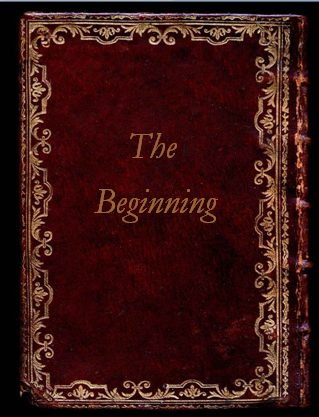 A lifelong relationship begins with a “hello”. A business begins with the very first customer. A mighty oak tree begins with a small acorn. Writing a book begins with the first word. A concert pianist begins with “Chopsticks”. Losing pounds begins with the first day of the diet. A dynasty begins with one man and one woman.
A lifelong relationship begins with a “hello”. A business begins with the very first customer. A mighty oak tree begins with a small acorn. Writing a book begins with the first word. A concert pianist begins with “Chopsticks”. Losing pounds begins with the first day of the diet. A dynasty begins with one man and one woman.
“Do not despise the day of small beginnings for the Lord rejoices to see the work begin” (Zech. 4:10).
God rarely begins a person on the highway to his or her destiny in a big way. Not that He can’t, but there is much to be learned on the road from small to big. And depending on what our dreams and destinies are, lessons will vary.
For example, how to manage people is a big lesson for anyone wanting to own their own business. Businesses rarely begin with more than a handful of employees so that owners learn how to hire wisely, manage workers with the right balance of respect and authority, and handle personnel problems. Imagine trying to learn all of that with dozens of employees. Or a military service member – he or she begins as the lowest-ranked soldier or officer and grows into more responsibility through promotion. To begin as an admiral or general would probably not work. Many other examples come to mind. Talents for writing or music or art must be developed; one begins small, writing for a school paper, performing in a music recital, or painting a school mural.
“Do not despise the day of small beginnings.”
We often want to start big and then get frustrated when we can’t. Or, we get tired of working, practicing, doing and re-doing and so we quit, thinking the dream will never happen. But here’s a principle: the bigger the destiny, the long the prep time. Oak trees take decades to become full grown. Masters take decades to perfect their crafts. Multi-million dollar companies take many years to become that profitable.
The fact is that to appreciate the value of “small beginnings,” we have to realize that all of life is about “becoming.”
We make the mistake of asking children what they want to “be” when they grow up. Rather we should be asking them what they want to “become.” Small distinction but the message is huge: “becoming” takes time and work. Fortunately, the Bible contains many examples of “becoming” from small beginnings.
David, for example, spent years by himself learning to shepherd sheep and fight the lions and bears. After that, he spent 16 years hiding in caves from Saul who wanted to kill him. What did he learn from all that trauma? Warfare, leadership and honor. And what did he become? A mighty warrior and a king.
Joseph was sold as a slave to a rich Egyptian (not fair), during which time he rose to favor for his ability to organize the entire estate and business, causing both to grow and prosper. And what did Joseph learn? He mastered the Egyptian language, culture, customs, and upper class etiquette as well as how to manage an estate, its staff and businesses. God was training him to become an administrator.
But then Joseph went to jail, accused of something he didn’t do (also not fair.) But while there, Joseph exhibited his talent for management and so the chief jailor put him in charge of all of the prisoners and prison affairs.
But why prison?
In prison, Joseph had become one of the “lower class,” the prisoners, and so he learned about their ways of thinking, their culture and customs. He learned how it felt to be them.
Needless to say, it was quite the coincidence that he’d need to know all of that as Joseph became Egypt’s second in command to Pharaoh.
Esther is another example – my favorite. Esther was among the young women “kidnapped” and put into the Babylonian king’s harem so that he could, he hoped, find his next queen. But before Esther could even hope to become queen, she first had to spend a year in the king’s harem – not, generally speaking, the first pick for a virtuous young Jewish girl. But in the midst of the beauty treatments, Esther learned the Babylonian language, culture and, I’m certain, a great deal about how to navigate the politics of a royal court and its country. And as we later find out, she needed that intel to become the one to save her people from annihilation.
What do David, Joseph and Esther have in common?
While they suffered much in the circumstances they were thrust into, each one still made the best of the situation by doing the best they could. They exhibited humility, excellence and honor despite their long periods of hardship. And here’s the endgame: each of them was promoted to royalty.
They did not despise their days of small beginnings.
Don’t be discouraged at the small beginnings of your dream or destiny. It can seem overwhelming when you envision how far you have to go so, as Michael Hyatt says, “Just do the next thing in front of you.” Then trust the Lord to grow the dream. Remember: “the Lord rejoices to see the work begin.”
Your work.


No Comments
Sorry, the comment form is closed at this time.